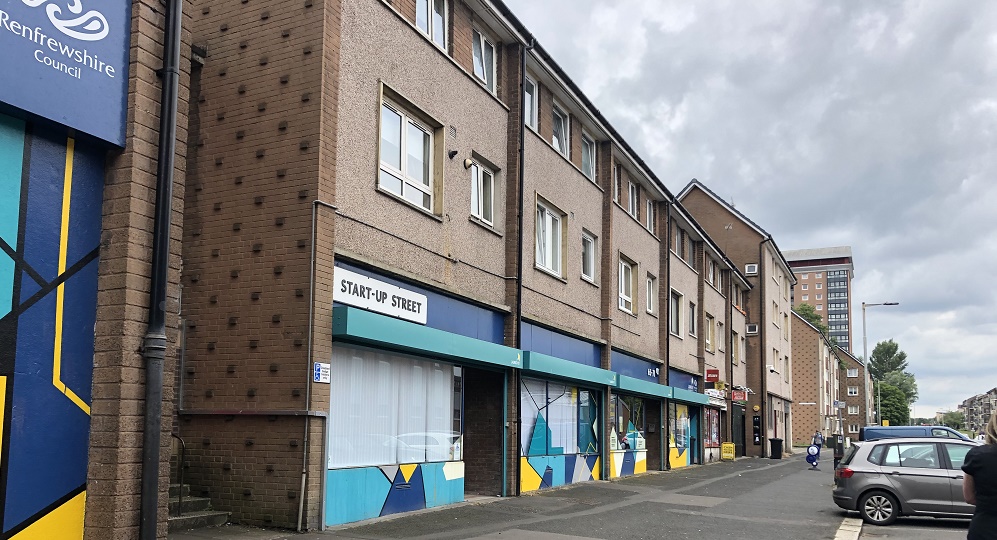Tim won the Practitioner Research Fund award in 2021 while working as a Senior Design Officer for Architecture and Design Scotland. He previously working at the Scottish Government’s Planning and Architecture Division, and Nottinghamshire County Council. Tim is a Chartered Planner with experience working in community-led planning and advising on policy matters. He received his Master’s degree in Town and Regional Planning from Heriot-Watt University in 2018.
Thanks to the RTPI’s Practitioner Research Fund award I was able to research the implications of community wealth building policy in planning in Scotland. This is a holistic form of municipalism that aims to build existing institutions within a local area up, rather than attract inward investment. The aim is to enhance citizens ability to make decisions on their places and spaces within their local area.[1] For planners, this means increasing community agency over the land and assets of a place.
My proposal aimed to ‘understand the impact of community wealth building (CWB), a local government level policy approach, on existing policy measures in Scotland.’ The grant allowed me academic support, funding for numerous site visits, and time to carry out a survey of over 233 local authority staff with over 20 follow up interviews.

'Start-up Street’ in Renfrewshire
In 2023, the Scottish Government rolled out the Fourth National Planning Framework, which is the first time that a national government has embedded a community wealth building approach at national level. Local Development Plans are now required to consider community wealth building priorities as part of the ‘evidence gathering’ stage of the plan. This presents a challenge to planners across the country as they interpret the framework and its impact on their communities.

Figure 2 The five pillars of Community Wealth Building (McInroy, 2020)
Even before the new legislation, council policy makers have been developing approaches to land and community wealth building from the ground up. My research looked across all councils in Scotland in search of listed community wealth building policies. This highlighted Scottish local authorities that are already taking this thinking into their work. I looked at how ‘pop-up’ shops, such as ‘Start-up Street’ in Renfrewshire have revitalised vacant shop fronts against a wider contraction of national retail. Councils like Clackmannanshire are prioritising development that advances social good, rolling out programmes such as the Alva Pathfinder initiatives that seek to regenerate their town centre in partnership with community groups. A series of Wellbeing Hubs were built, bringing a series of community sites back into use.
My research also led me to what is so far small in scale but has transformative potential. Many pre-existing community wealth building strategies mentioned the need for a ‘green transition’ in the construction sector. Local authorities wealth of assets and ability to influence other anchor institutes put them in a useful place to develop a market for more innovative, eco-friendly approaches to insulation and green energy. Current approaches are being taken at central government level or are small in scale. However, good practice here can be seen in the ambitious strategies taken by combined authorities in England such as Greater Manchester Combined Authorities’ retrofitGM.
Elsewhere, as evident in labour shortages, depopulation and decreased footfall, a lack of affordable housing in Scotland’s town and city centres can be to blame for many local economic issues. 17% of those surveyed regarded this as the biggest problem affecting land in Scotland. Yet many of the housing professionals interviewed cited how housing funding by Scottish Government, such as the Rural Housing Fund, encouraged the kind of suburban, car-centric, low density housing that would fail to revitalise their town centres.
To achieve the kind of radical change the approach calls for, the research carried out found the following changes would be needed:
- Self-initiating on council strategy – the policy review and survey of perceptions found that when councils self-initiate a CWB approach, their staff are more likely to be buy into the process than initiated through a funding proposal.
- Aligning with anchor institutions – understanding common goals between under-engaged local economic actors is key. This was also true internally within councils, where awareness of community wealth building was high among economic development and planning but less known elsewhere.
- Widening participation in the process – increasing public participation in the assets in their area was crucial, and can only happen through the championing of cooperatives, development trusts and other community-centred organisations in the local economy. Greater resources and undoing of legislative barriers would enhance this goal.
- Reform to competitive bidding practices – clear, consistent funding allocated at local level to proven community groups was seen as a means of giving community stakeholders the chance for further involvement in the planning process. Community practitioners interviewed often lacked the resources to engage in the planning process on top of their daily duties.
The full report, published here by Scottish Urban Regeneration Forum (SURF), sets out the full range of findings and recommendations. This research aims to provide a holistic overview to community planning practitioners and local authority urban planners alike.
The RTPI's consultation response to the general advancement of the community wealth building approach can be viewed here.
Grant/funding applications
Applications for the Practitioner Research Fund 2023-24 are now closed and will reopen in spring 2025.
Applications for 4x RTPI Early Career Research grants of £10 000 each are now open, see RTPI | Research grants.
[1] Guinan & O’Neill, 2019


